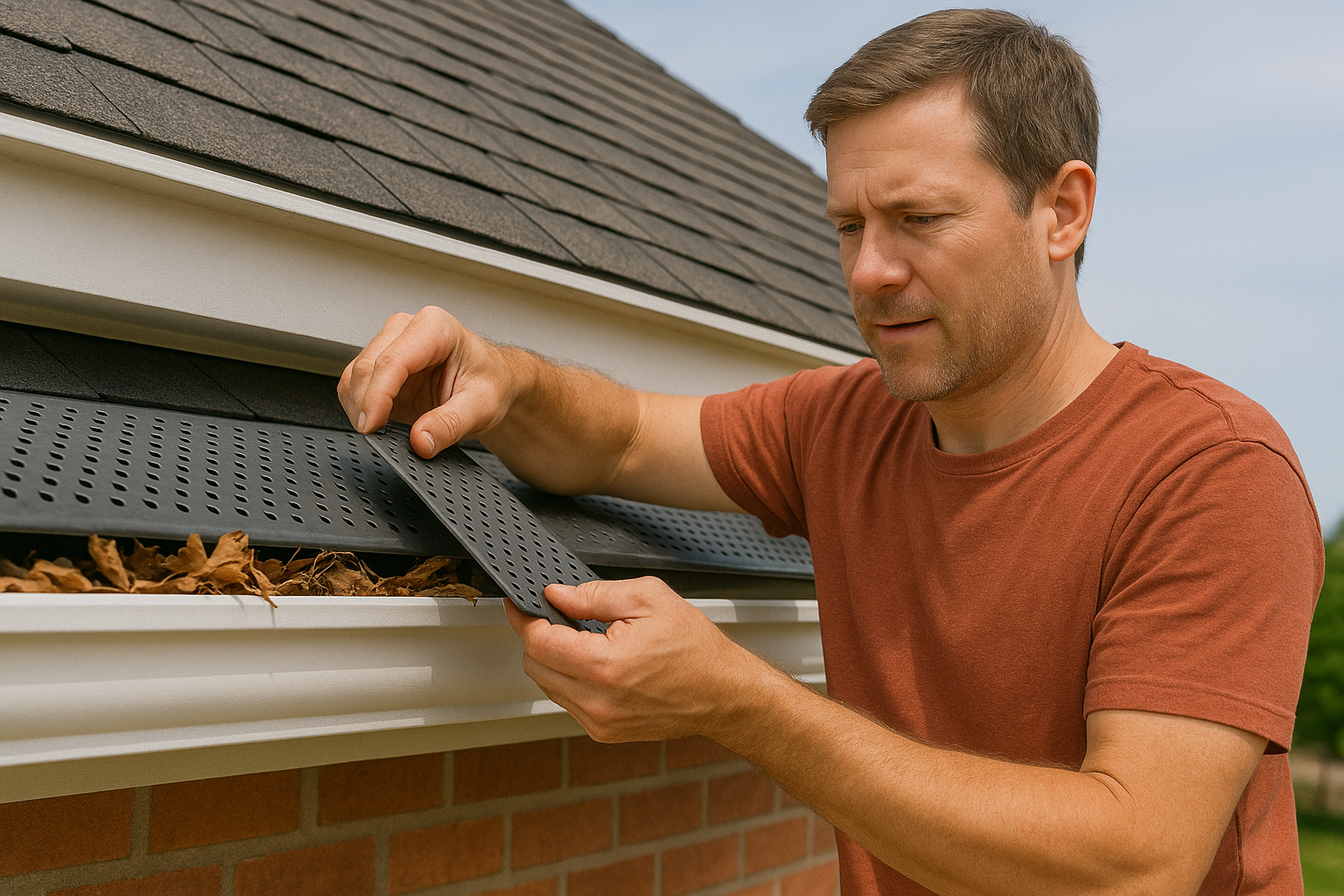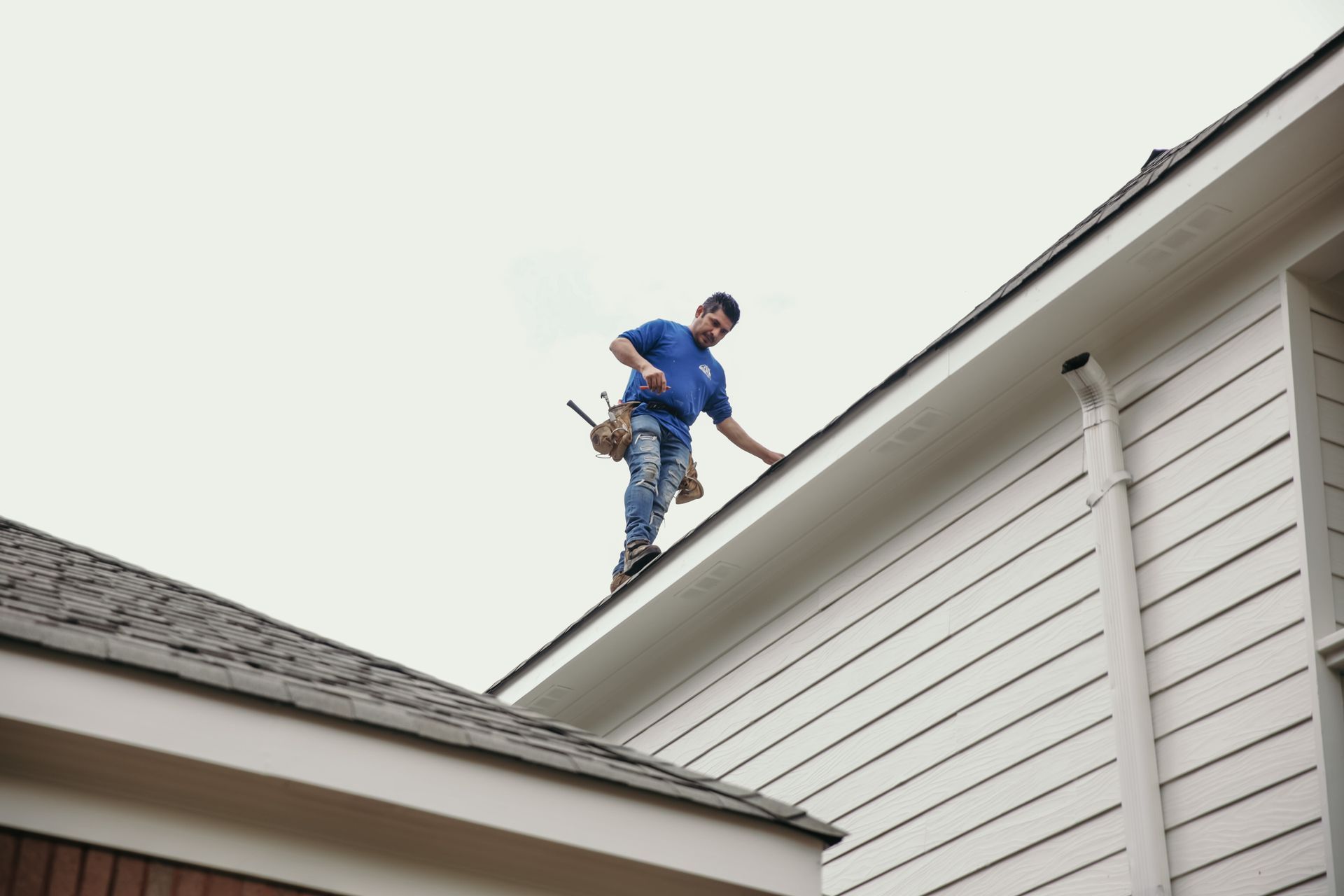How to Install Gutter Guards for Your Home?
Gutter guards are often overlooked when it comes to keeping your home safe and sound, but they shouldn’t be. Installing them might just be one of the smartest long-term decisions a family can make. From preventing ice buildup to saving you hours of cleaning your gutters, the right gutter guard can protect both your roof and your sanity.
This article is your complete guide to why you might need to install gutter guards, what to expect during the installation, and how to pick the best material for your project. Whether you're a seasoned DIYer or just tired of fishing out every leaf and twig, this guide is for you.
Key Takeaways
- Gutter guards block debris, helping water flow freely through your gutters
- They reduce the need for frequent gutter cleaning, saving time and money
- Different materials serve different climates and roof styles
- Professional installation can prevent long-term gutter repair costs
- Investing in gutter guards helps protect your home from ice, overflow, and future damage
What Is a Gutter Guard and How Does It Work?
A gutter guard is a protective cover that sits on top of your gutter. It is designed to prevent leaves, twigs, and other debris from clogging the system. The guards' job is simple: let water in and keep the rest out. This helps reduce the need for frequent gutter cleaning and protects your roof and home from costly water damage.
How Gutter Guards Function
At the core, they work by providing a barrier between the open air and the inside of your gutter. Depending on the material, some are mesh-style, others are solid-surface with slits. No matter the design, the goal is the same — to redirect water and block unwanted debris.
Common Materials for Gutter Guards:
| Type | Material | Works Best For |
|---|---|---|
| Screen | Aluminum/Plastic | Larger debris, light rains |
| Micro Mesh | Stainless Steel | Small leaf and twig filtering |
| Foam Inserts | Polyurethane | Quick installs, low budgets |
| Surface Tension | Aluminum | Heavy ice, high-volume water |
Installing the wrong gutter guard can lead to bigger problems, so it’s important to understand how they function before you buy.
Why Do You Need Gutter Guards for Your Home?
If you've ever spent a Saturday afternoon cleaning your gutters, you know it’s not fun — and it’s rarely a one-time project. But this isn’t just about convenience. Installing gutter guards can help you protect your home and your family from serious issues.
Top Reasons You Might Need to Install Gutter Guards
- Prevent water overflow during storms
- Stop ice buildup that leads to cracks and leaks
- Keep pests like birds and rodents out of your gutters
- Reduce the number of times you’ll need to clean your gutters
- Extend the life of your roof and gutter system
Protecting Your Family and Home Long Term
Gutter backups can lead to roof leaks, foundation cracks, and even mold issues inside your home. If you want to install a system that brings peace of mind, gutter guards are worth a look. They’re a small investment now that can save your family thousands later.
What Types of Gutter Guard Material Are Available?
Picking the right material for your gutter guard makes all the difference. Some types work better for snow, others for heavy leaf fall. The goal is to install a system that fits your climate, roof design, and cleaning tolerance.
Popular Gutter Guard Materials
| Gutter Guard Type | Material | Pros | Cons |
|---|---|---|---|
| Foam | Polyurethane | Easy to install, affordable | Can degrade over time |
| Brush | Wire bristles | Simple DIY install | The trap's leaf is hard to clean |
| Screen | Aluminum/Plastic | Keeps out large debris | May lift under the shingle |
| Micro-Mesh | Stainless Steel | Great against fine debris | Higher cost, precise installation required |
| Surface Tension | Aluminum | Best for heavy water flow | It may require shingle adjustment |
What Material Is Best for Your Home?
If your roof is prone to heavy ice and water, metal options with tension-flow design work best. In leafy areas, micro-mesh is your friend. Before you install gutter guards, make sure you’re choosing one that matches your environment and how often you want to maintain it.
Can You Install Gutter Guards on Any Roof Type?
Yes—but not all roof types are created equal. Whether you have a steep pitch or a flat roof, the way you install your gutter guard will vary.
Roof Types and Gutter Guard Compatibility
- Asphalt shingle roofs: Most compatible, especially for surface-tension guards
- Metal roofs: Often need special clips or adjustments
- Tile roofs: May require custom brackets to avoid damaging the tiles
- Flat roofs: Usually don’t need traditional gutter guards, but some benefit from basic debris screens
What to Watch For
If your shingles hang too far over your gutter, it can block the gutter guard from sitting correctly, causing problems with water flow and debris buildup. You’ll want to install them with care or hire a pro who understands gutter systems inside and out.
What’s the Best Way to Install Gutter Guards Properly?
Proper installation matters, whether you’re taking on the project yourself or hiring help. A poorly installed gutter guard can cause more problems than it solves, trapping debris, misdirecting water, or even damaging your shingles.
Steps to Install Gutter Guards the Right Way
- Clean the gutters thoroughly before starting
- Check for any existing gutter or downspout damage
- Choose a gutter guard that fits your gutter width and roof design
- Install from one end to the other, ensuring secure attachment
- Test the water flow using a hose
Some systems require lifting the bottom of your shingle. If you’re not confident, this is where a pro can really help.
Quick Tip
If you decide to install your gutter guards yourself, follow the manufacturer's instructions, especially if you're using gutter machines for precision installations.
Is This a DIY Project, or Should You Hire a Pro?
Let’s be honest—not every home project is DIY-friendly. Some gutter guard systems are easy to install, but others require tools, ladders, and careful handling of delicate roof edges.
When to DIY
- You’re using a basic snap-on screen or foam
- Your roofline is single-story and not steep
- You’ve done gutter cleaning and minor repairs before
When to Call a Pro
- You’re installing micro mesh gutter guards or surface tension systems
- Your roof has multiple levels or tricky slopes
- You want a system that lasts 10–20 years without guesswork
In some cases, hiring a pro to install gutter guards will save you both time and future repair costs, especially if they include a warranty.
How Do Gutter Guards Help Prevent Ice and Water Damage?
Winter brings more than just a chill. If your gutters are exposed and unprotected, ice can wreak havoc on your roof, shingles, and siding. A good gutter guard helps control water flow and reduce freeze risks.
How Gutter Guards Prevent Ice Dams
- They keep gutters clear of leaf, twig, and debris buildup that causes blockages.
- They reduce standing water, which leads to ice formation
- Some systems are designed to shed snow and prevent it from accumulating at the roof’s edge
Avoiding Cold Weather Damage
Ice that builds at the edge of your roof can eventually back up under your shingles, leading to leaks and interior water damage. Installing the right gutter guard helps avoid that mess and gives your family peace of mind during winter storms.
Can Installing Gutter Guards Save You Money Over Time?
It may seem like an extra cost upfront, but installing gutter guards is one of those upgrades that save you money in the long run. Think about all the times you’ve had to clean your gutters—or pay someone else to do it.
Ways Gutter Guards Save Money
- Fewer maintenance calls for gutter cleaning
- There is less chance of paying for roof or siding repairs from water overflow
- Reduces the frequency of gutter repair and replacements
Cost Comparison Table
| Task/Service | Without Gutter Guards | With Gutter Guards |
|---|---|---|
| Gutter Cleaning (2x/year) | $300–$500 annually | $0–$100 annually |
| Minor Gutter Repairs | $150–$400 occasionally | Rarely needed |
| Water Damage Repair | $1,000+ | Unlikely with guards |
| Initial Installation | N/A | $600–$1,500 (avg.) |
Over a few years, gutter guard systems easily pay for themselves, while helping you avoid emergency repairs and giving you one less chore.
Conclusion
Gutter guards are more than just accessories—they’re a smart, long-term solution for homeowners who want less stress and better protection. By installing gutter guards, you help your gutter system function properly, reduce the risk of water and ice damage, and reduce seasonal maintenance.
Ready to protect your home with gutter guards?
Contact Gutters 4 Less today for expert installation, honest pricing, and a free estimate. We’ll help keep your home protected—no clogs, no stress.





